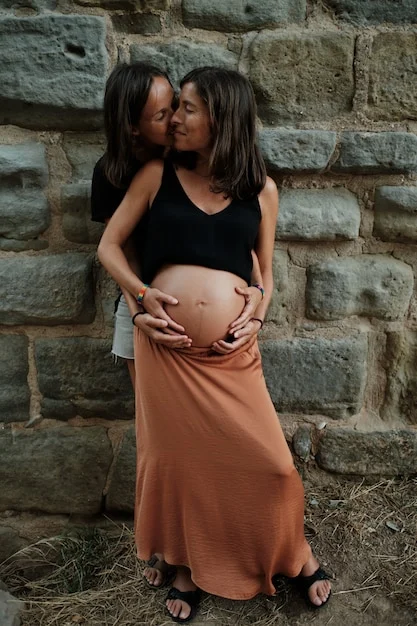I had a chat with a mom who chooses not to vaccinate her kids, and honestly, some of the things she said were pretty thought-provoking. You know how we often hear anti-vaxxers described as selfish or reckless? I get where that comes from, but I wanted to understand her perspective better.
Meet Emily
So, I spoke with Emily (not her real name), a 39-year-old mom of three from Ithaca, New York. She vaccinated her eldest son, who’s now 19, but opted out for her second child, who’s 11, and due to a religious exemption, she can’t vaccinate her youngest, who’s 8.
Changing Perspectives
When I asked her what led to this change in mindset between her first and second kids, she explained, “I was only 20 when my first was born, and I just followed the doctor’s orders without question. But by the time my second son Charlie came along, I felt different; it was like a little voice inside me was saying, ‘Something’s not right.’ He was super sensitive to everything, from sunburns to food. He cried a lot as a baby, and I was really worried about his health.”
Emily expressed frustration over the religious exemption process: “It’s ridiculous that I have to declare that God told me not to vaccinate. I wish I could just say I have my own reasons.”
Research and Concerns
By the time her second son was born, she had done her research and disagreed with the standard vaccination schedule. While I pointed out that doctors are flexible about this, she brought up common anti-vaccine concerns: she believed vaccines weren’t tested thoroughly enough, and she seemed fine with the risk of her kids catching diseases like measles or whooping cough. She even sent me a link to a site that claimed more deaths were caused by the measles vaccine than by measles itself over the last decade.
When I mentioned that vaccines have played a crucial role in eradicating dangerous diseases, she responded, “But measles rates dropped significantly before the vaccine came along. Even during outbreaks, deaths are rare.” She also seemed to think that our modern hygiene and nutrition would lessen the impact if these diseases returned.
Specific Health Concerns
Despite her strong beliefs, Emily emphasized that her decision not to vaccinate Charlie was due to his specific health issues, which were a concern for her. She had implemented a strict diet for him, and she reported that he had improved significantly, even enjoying Halloween candy this year, which had previously been off-limits because of corn syrup.
As for her youngest, Henry, who is now 8 and healthy, she said, “I wasn’t as worried about him, but since I had already signed the religious exemption for Charlie, I couldn’t change it for Henry.” It turns out that in New York, the school has the final say on these exemptions, and if they suspect insincerity, they can deny them.
“It’s just so annoying that I have to attribute my decision to a higher power,” Emily joked. “I’d rather say it was the Flying Spaghetti Monster who told me!”
The Bigger Picture
While I realize that Emily’s situation might not be typical—many parents have broader reasons for their decisions—not vaccinating any child impacts herd immunity. She made a valid point that the exemption system means public health officials miss out on valuable insights about why parents choose not to vaccinate. “They could be gathering real data on families like mine with autoimmune issues instead of just accepting ‘God told me not to.’”
Ultimately, it seems that no amount of facts or research will change some anti-vaxxers’ minds, but understanding their reasons can help bridge the gap. And while the religious exemption may seem flimsy, with better information, we might be able to sway those who are on the fence about vaccines. This small shift could lead to a few more children getting vaccinated, which is what we really need.
Further Reading
For those looking for more information on pregnancy and home insemination, this article is a great starting point, and you can check out other resources here, such as on infertility and related topics. If you’re curious about enhancing fertility for men, you might want to look into this as well.
Conclusion
In summary, my conversation with Emily opened my eyes to the complexities of vaccine hesitancy. While her views may differ from the mainstream, it’s essential to understand the individual reasons behind such decisions.
